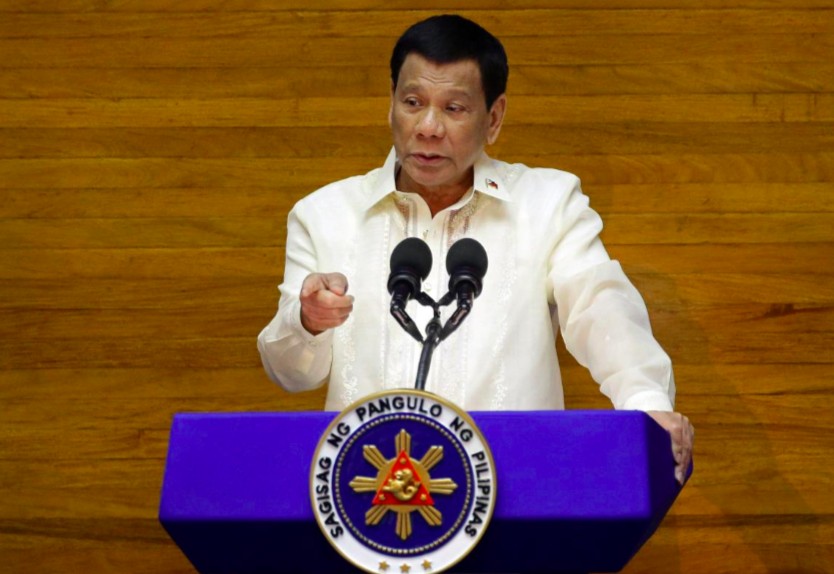Duterte unveils landmark Muslim autonomy law
Change Size
 Philippine President Rodrigo Duterte delivers his State of the Nation address at the House of Representatives in Quezon city, Metro Manila, Philippines July 23, 2018. (Reuters/Czar Dancel)
Philippine President Rodrigo Duterte delivers his State of the Nation address at the House of Representatives in Quezon city, Metro Manila, Philippines July 23, 2018. (Reuters/Czar Dancel)
P
hilippine President Rodrigo Duterte unveiled legislation on Monday that grants greater autonomy to Muslims in the southern region of the country and expressed a wish that the agreement will bring an end to one of Asia’s longest-running separatist conflicts.
“I hope [the law] will finally end the decades-old conflict that is rooted in the Bangsamoro’s fight for self-determination and the recognition of their unique identity,” Duterte said during his remarks at the unveiling ceremony before presenting a copy of the law to Al Haj Murad Ebrahim, chairman of the separatist Moro Islamic Liberation Front.
The law, which is called the Bangsamoro Organic Law, was signed in late July, but has been anticipated for much longer. It is the legislative accompaniment to a 2014 peace agreement between Duterte’s predecessor, Benigno Aquino, and MILF. At the time, the law stalled when the Congress refused to pass it.
Under the deal, MILF agreed to drop its bid for full independence—which has been ongoing since 1978 in a conflict that has claimed the lives of roughly 150,000 people and mired the Mindanao region in a cycle of extreme poverty—in return for the right to self-rule.
The Bangsamoro Autonomous Region will be led initially by a transitional authority made up of former separatist fighters before eventually being governed by its own parliamentary body.
The national government will retain its police and military presence in the area and combatants—the number of armed separatist rebels is believed to be in the tens of thousands—are set to put aside their weapons in phases.
Under the new law, the region would keep 75 percent of taxes collected in the area and is set to receive an annual block grant allocation worth 5 percent of the country’s national revenues, which comes out ot around $1.1 billion.
The law also gives the region the right to its own judicial system made up of Islamic shariah courts for cases involving Muslims.
The new region replaces an earlier attempt at a semi-autonomous zone that was created by a 1996 deal with another major rebel group, the Moro National Liberation Front. That deal was criticized for only benefiting a small number of people, and ultimately failed to bring about peace and development.
The Bangsamoro Organic Law has been heralded by UN Secretary-General, Antonio Guterres, as a “landmark achievement on the road to lasting peace.”
It is widely hoped that over time, the changes laid out by the law will not only bring an end the existing conflict, but will also make armed struggle less attractive for the region’s young Muslims in the future—that they will choose to fight with political, rather than military might. The success of the 2014 peace deal and this supporting law depends on that choice.
As laid out by the 2014 peace deal, the legislation must be approved by a regional plebiscite before it can be fully adopted. The referendum is expected to pass.
Quinn Libson is an Associate Editor at Asia News Network






